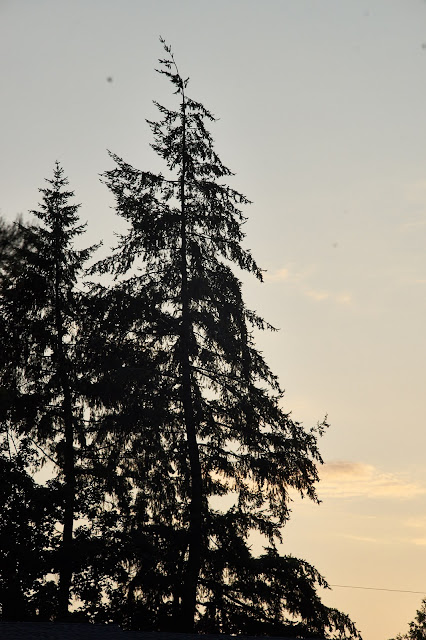This is a letter I wrote to the Salem City Council and Budget Committee concerning the possibility of reducing the public library's budget. In all honesty, I wish I could take this further, but wanted to keep the length short while still hitting key points. I found some excellent articles and relevant issues in my research that I wasn't able to cover. I was particularly interested in the many roles a library takes on in a community as well as the disappearing safe locations for youth and adults to gather in towns and cities.
I hope this letter can serve as an act of support for the community at the least and potentially a spring board for others and their own research.
Notice: Blogger does not allow for indented paragraphs for long quotations. In lieu of this formatting option I will be using single quotations.
***
Esteemed members of the city council,
Salem is facing a budget problem and somehow our library’s future has been placed squarely in the center of this fight. Many members of our society have spoken, over the years, on how valuable libraries are to a city. What is the benefit to a community? I can tell you my personal experience, but I can also tell you what citizens who have studied this very problem have discovered, in their own words.
I have lived in Salem since I was a small child. I spent an enormous amount of time in the children’s book section during the summer. It felt like a safe space. Participating in summer reading programs was a huge boon to my cultural and general education as a child. As a young teen I often spent half a day in the library studying for papers with the resources offered. The internet was new at the time. I learned to use a search engine from a librarian to find scholarly articles. I received help looking at old newspapers for historical information, and used periodicals to browse subjects I simply wanted to know more about. The library was a place I could feel at home and supplement my education. Today, it still serves as this type of place even as the world has changed. I have gained and still gain research skills and curiosity about subjects that improve my education and they follow me into adulthood and have aided me in my career, hobbies, and everyday life. Most importantly the library helps me to feel a part of a community, a member of the city of Salem.
In a 2015 article from NPR, entitled “Do We Really need libraries?” by Linton Weeks, sums up why libraries are important to any community.
'What are the benefits of libraries in this day and age?
Like a good librarian, Tony Marx of the New York Public Library has some answers. Today's libraries still lend books, he says. But they also provide other services to communities, such as free access to computers and Wi-Fi, story times to children, language classes to immigrants and technology training to everyone.
"Public libraries are arguably more important today than ever before," Marx says. "Their mission is still the same — to provide free access to information to all people. The way people access information has changed, but they still need the information to succeed, and libraries are providing that."
Or as Andrew Carnegie said many years ago: "A library outranks any other thing a community can do to benefit its people. It is a never failing spring in the desert." '
Libraries help our entire community thrive. If people, younger and older, have a place they can learn and grow as our society changes and our city has the capability to provide that space, we all benefit. Fostering community involvement, ensuring our city has a bright future, and giving everyone this exceptional service that the librarians and programs provide, is just as important as providing police and fire and other city services. It is another type of security in the community. “A library is a place of safety, a haven from the world.” (“Why We Need Libraries”)
Citizens all over the country prefer to live and visit where there is a working and thriving library system. In Minnesota “[p]eople prefer to live near a public library if they have a choice, and often perceive library access as part of an enhanced quality of life.” (“Create and Strengthen Communities - Libraries Matter") Libraries are often visited as tourist destinations or by new residents to a city. “Carnegie Library of Pittsburgh is the area's most visited regional asset. The Main Library in Oakland alone is the second most visited destination[.]” ("Library as Tourist Destination") The reason for this gravitation towards libraries is not just the physical books and librarians, although they can offer a huge draw on their own. The library as a physical community meeting space with a focus on education and communication seems to be a main reason for frequent visits. In an ALA document regarding Wisconsin public libraries entitled "Public libraries provide valuable meeting spaces,” this topic is discussed.
'Many interviewees place a great deal of importance on the value of a comfortable public library facility where they can gather, especially as opportunities for social interaction have decreased in the wake of more people seeking out services online[.]'
Salem is no different. The decrease of hours and staffing would greatly reduce the ability of community members to hold meetings, socialize outside of their homes, and seek the essential services provided by the library.
Our library has recently undergone a beautiful new upgrade. To reduce staffing and hours to a bare minimum would be a waste of needed, and already funded, resources. Many libraries throughout the country have updated their facilities to keep up with growing community needs, as Jennifer Howard explains for The National Endowment For Humanities:
'To keep up with changing technology and user expectations, public libraries have invested in more computer terminals and Wi-Fi capability. They have upgraded and expanded facilities to provide more outlets, meeting rooms, study spaces, and seating that patrons can use for extended periods of time as they take advantage of free Wi-Fi.'
In addition to these upgrades, Salem has a somewhat unique set of needs. Like any city, we have a changing set of demographics whose needs cannot be met by the same standards of a city in a totally different state. Salem is the Capital of Oregon. With that status comes certain responsibilities. The entire state looks to us as well as Portland as a leader. With that in mind I would like to address our unique demographics. Salem has a high percentage of Spanish speaking residents. On Census.gov the city of Salem has a 22.8% hispanic or latino population, which is greater than the national average of 19.1% hispanic or latino citizens. (“US Census Bureau”) While this population may or may not speak Spanish, this data suggests there is a higher likelihood of Salem benefitting from Spanish programming and bilingual librarians than many libraries in the country. Salem also has more citizens under the age of 18 than the national average. Salem has a percentage of 23.2% people under the age of 18 and the national average is 21.7%. (“US Census Bureau”) Teens need a safe place to hang out and study and in my trips to our library I have seen teens using the library as such a space. To limit everyone’s ability to use this space and all that it offers would do great harm to the community.
I would like to end by giving gratitude to the Salem Public Library. The library has gone through adversity in my time living in Salem, and grown stronger from the challenges. The services the library provides are immeasurable, such as: mobile apps, concerts, study rooms, the library of things, self check out, free parking, movie and music check out, wifi, computers, reading programs, cultural programs, arts and crafts programs, language lessons and services, child enrichment, space for community meetings, compiling Salem’s history, and of course books. Imagine our city with a 20% reduction of these services, 30% reduction or even greater. Community members would have less places to spend time, socialize, gather, learn, and grow. The alternatives would create strain on other city services, and create a deficit in community involvement for years to come.
Please consider other options than drastically limiting the library’s budget. There are other areas where we can ask volunteers to fill in to help such as in areas of our parks, police support, or fire support, or find a compromise that does not severely limit a needed service such as the library. Reducing services that create community only limits our community. Let’s build our community.
I really appreciate your time in hearing me on this important issue. Thank you to the city council and employees of the city for your attention to this matter.
Lisa Miller
Citations
Weeks, Linton. “Do We Really Need Libraries?” NPR, NPR, 5 May 2015, www.npr.org/sections/npr-history-dept/2015/05/05/403529103/do-we-really-need-libraries.
Gaiman, Neil, and Chris Riddell. “Neil Gaiman and Chris Riddell on Why We Need Libraries – an Essay in Pictures.” The Guardian, Guardian News and Media, 6 Sept. 2018, www.theguardian.com/books/gallery/2018/sep/06/neil-gaiman-and-chris-riddell-on-why-we-need-libraries-an-essay-in-pictures.
"Create and Strengthen Communities - Libraries Matter", American Library Association, dynamically generated page. http://www.ala.org/tools/research/librariesmatter/category/create-and-strengthen-communities (Accessed April 14, 2024)
"Library as Tourist Destination", American Library Association, July 15, 2011. http://www.ala.org/tools/research/librariesmatter/library-tourist-destination (Accessed April 14, 2024) Document ID: b4186f44-c45e-cec4-4de6-6bbb0e3a0242
"Public libraries provide valuable meeting spaces", American Library Association, February 29, 2012. http://www.ala.org/tools/research/librariesmatter/public-libraries-provide-valuable-meeting-spaces (Accessed April 15, 2024) Document ID: dff4410a-cb3c-c0e4-91e4-0c60a920abef
Howard, Jennifer, et al. “The Complicated Role of the Modern Public Library.” The National Endowment for the Humanities, 7 Nov. 2019, www.neh.gov/article/complicated-role-modern-public-library.(Accessed April 14, 2024)
U.S. Census Bureau Quickfacts: Salem City, Oregon; United States, www.census.gov/quickfacts/fact/table/salemcityoregon,US/PST045222. Accessed 15 Apr. 2024.











